gastrointestinal lymphoma in cats symptoms
First a blood test is always used to detect systemic. With treatment cats diagnosed with this type of lymphoma have an average life expectancy of 15-2 years.

Lymphoma In Cats Atlantic Veterinary Internal Medicine
Symptoms of feline intestinal lymphoma alimentary feline intestinal lymphoma is often referred to as an alimentary form of this cancer.
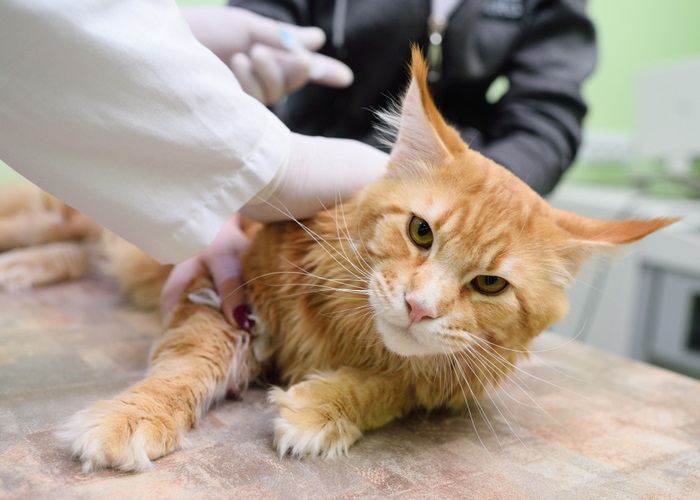
. Intestinal Lymphoma in Cats. Cats with Feline Leukemia Virus FeLV or Feline Immunodeficiency Virus FIV are more likely to develop lymphoma. Changes in drinking and urination habits can be a sign of renal lymphoma.
Other symptoms are common depending on where the cancer invades. Intestinal lymphoma originates in the GI tract and will often be accompanied by severe gastrointestinal symptoms. Surgery chemotherapy radiation treatment and palliative care therapies that make patients feel better but dont directly address the underlying disease will often prolong and improve the quality of life for.
Gastrointestinal lymphoma in cats is an increasingly common disease that can affect a cats small intestine stomach liver abdominal lymph nodes or large intestine. Affects the lymphoid organs in the chest most often seen in young cats. Cats with high-grade GI lymphoma will suddenly develop vomiting diarrhea weight loss and lethargy.
Bloodwork is likely to be normal in cats with gastrointestinal. Intestinal lymphomas usually cause poor eating weight loss diarrhea and vomiting. As lymphocytes are present throughout the body lymphoma can develop in any organ.
At the end stage of lymphoma the cancer invades organs and bones -- any place where the lymphatic system connects. Lymphoma may involve neoplastic proliferation of T or B or non-Bnon-T type lymphocytes occurring primarily in the bone marrow lymph nodes and visceral organs. The blood tests are often normal but ultrasound of the abdomen may show thickened intestines enlarged abdominal lymph nodes and tumors.
Symptoms of lymphoma in cats. Gastrointestinal lymphoma in cats is an increasingly common disease that can affect a cats small intestine stomach liver abdominal lymph nodes or large intestine. Removal of a mass would require surgery.
An ultrasound would show. To diagnose feline intestinal lymphoma look for common symptoms like loss of appetite vomiting changes in stool increased drinking and urinating or eating inedible objects. The most common type of lymphoma- gastrointestinal lymphoma- affects the gastrointestinal tract so causes weight loss diarrhoea and vomiting.
Symptoms include vomiting diarrhea weakness and lack of appetite or refusal to eat. As its name suggests this is the type of lymphoma that most obviously affects the cats gastrointestinal tract. Lymphoma may cause a mass which can potentially block the intestinal flow.
A veterinarian or veterinary oncologist will perform a biopsy and test cells from the tumor and once the test results are back he or she can determine whether your cats intestinal lymphoma is low- intermediate- or high. Intestinal lymphoma is the most common form of lymphoma in cats. Gastrointestinal Lymphoma in Cats and IBD in cats.
There are two forms of lymphocytes. Lymphoma in cats is now most commonly seen in the intestines. Cats with lymphoma will show general signs of illness with a dull coat lethargy and changes in appetite being common symptoms.
This is by far the most common type of lymphoma in cats accounting for 50-70 of feline lymphoma cases. This is by far the most common type of feline lymphoma and results in gastrointestinal symptoms such as weight loss vomiting diarrhea and appetite changes. Lymphoma also called lymphosarcoma and other types of cancer may be diagnosed in cats with symptoms of gastrointestinal disease.
Lymphoma outside the gastrointestinal tract. Its also important to note. They are usually quite ill and the symptoms can be dramatic.
Clinical signs of lymphoma in the gastrointestinal tract include weight loss vomiting diarrhea and often either a decreased or increased appetite. In general the symptoms may reflect other diseases and specialized tests are typically required to obtain a cancer diagnosis. Common sites of lymphoma in cats include.
Affects the gastrointestinal tract this is the most common type more likely in senior cats. B and T cells. Most noticeably the cat will likely experience a gradual overall decline including.
This question is one that arises in most cases in cats because both Gastrointestinal GI lymphoma and Inflammatory Bowel Disease IBD present similar symptoms like diarrhea vomiting reduced appetite and weight loss. Physical exam findings may be normal though thickened intestines or abdominal masses may be felt. Diagnosis of lymphoma in cats.
Originates in the lymph nodes. It is most common in older cats at least nine years of age. Lymphoma is found to be responsible for around 90 percent of blood cancers and account for about 33 percent of all tumors in cats.
It is also the most common cause of hypercalcemia in cats a condition. This term describes lymphoma that affects the gastrointestinal tract. Is it intestinal lymphoma or is it IBD.
Symptoms of intestinal lymphoma in cats vary a great deal depending upon the situation. However several known factors may predispose a cat to lymphoma. Intestinal Lymphoma in Cats.
Cats may develop different types of lymphoma including. High-grade and low-grade lymphoma. How is high-grade GI lymphoma diagnosed.
It is most common in senior cats with the average age at diagnosis ranging from 9-13 years old. For example if lymphoma occurs in the kidneys it will cause. Lymphoma is by far the most common intestinal cancer in cats.
The symptoms of this type of cancer are quite nonspecific so several tests may be necessary to find the disease. Sometimes cats with feline intestinal lymphoma will start drinking and urinating more. In any cat that has signs consistent with high-grade GI lymphoma the first diagnostic step is an abdominal ultrasound.
The symptoms of feline intestinal lymphoma are vague and occur with many other illnesses in cats. Of course these symptoms are also present with a number of other feline disorders especially inflammatory bowel disease so a clinical diagnosis is necessary. Prednisone which is a steroid is often used in combination with.
Generally speaking the life expectancy is between 4 weeks to 2 years. Write down when you first start noticing symptoms and monitor. In many cases the underlying cause of feline lymphoma cannot be determined.
This type of lymphoma is linked to nearly 70 of cases in cats source and is most common in seniors ranging from 10-13 years old. Affects the kidneys as healthy kidney cells get replaced by cancerous cells. Thankfully the most common type of feline lymphoma intestinal lymphoma is often low-grade or small cell.

Lymphoma In Cats Veterinary Partner Vin
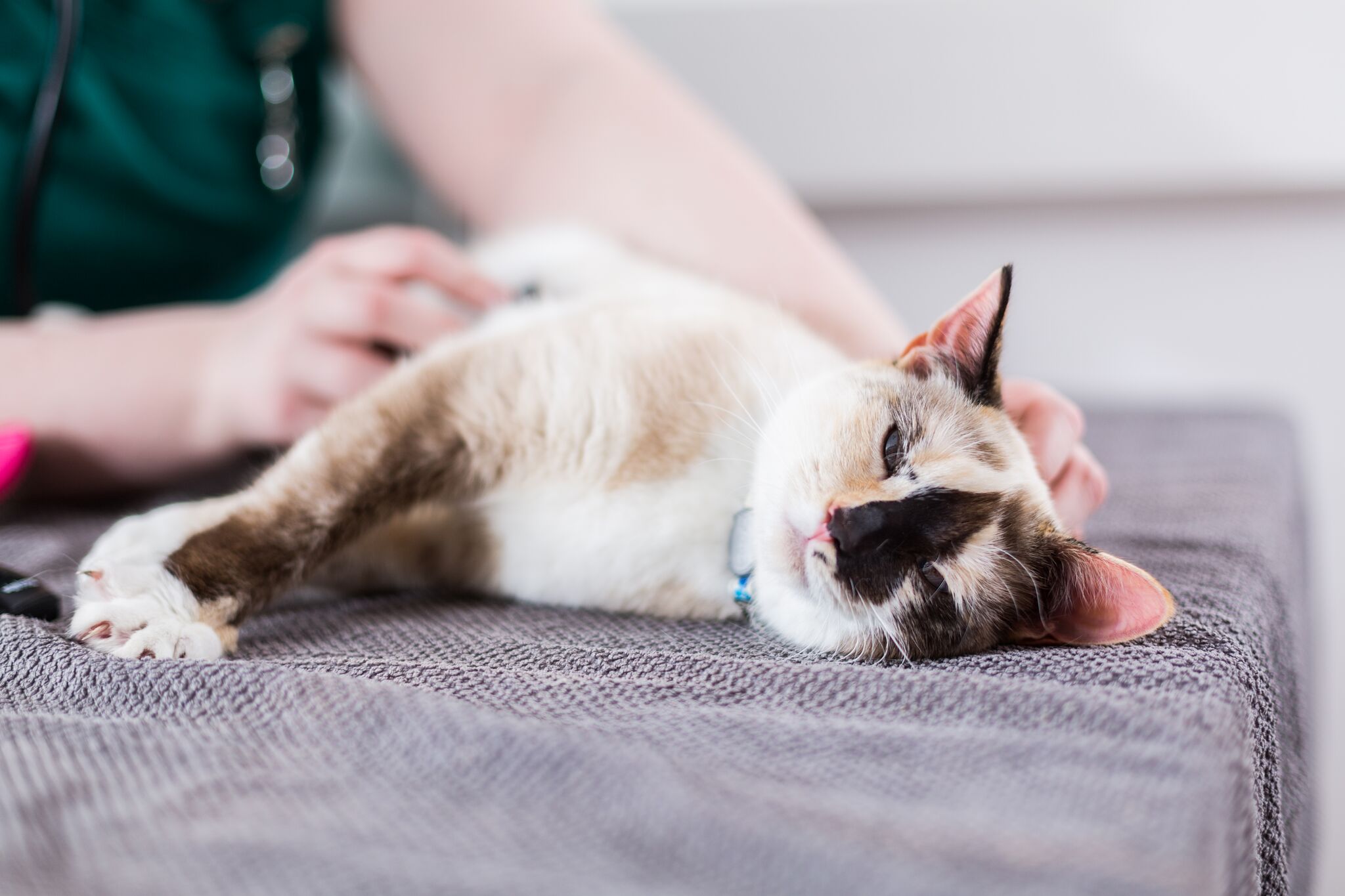
Blog Referral Vets In Leeds Swift Referrals

3 Ways To Treat Feline Intestinal Lymphoma Wikihow

Lymphoma In Cats Symptoms Diagnosis Treatment All About Cats

Cancer Lymphoma In Dogs And Cats

Lymphoma In The Cat Fact Sheet Davies Veterinary Specialists

How To Diagnose Feline Intestinal Lymphoma 9 Steps

Feline Gi Lymphoma And Ibd Research At Basepaws

How To Diagnose Feline Intestinal Lymphoma 9 Steps

Read About Gastroenterology In This Article By Sandra Grover
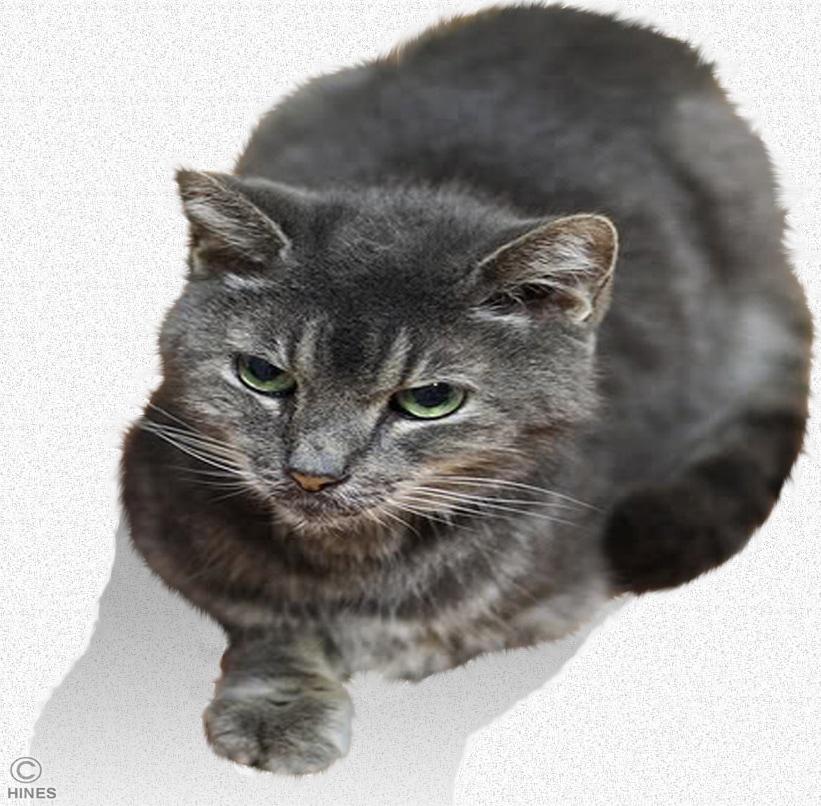
Lymphoma In Your Cat Ron Hines Vetspace 2nd Chance The Animal Health Website

Diagnosis And Treatment Of Feline Lymphoma Glories Veterinary Hospital

Causes And Risks Of Cat Lymphoma And Leukemia Vlog 97 Youtube
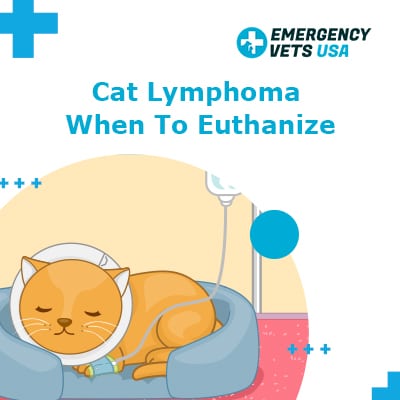
Cat Lymphoma When To Euthanize Our Opinion
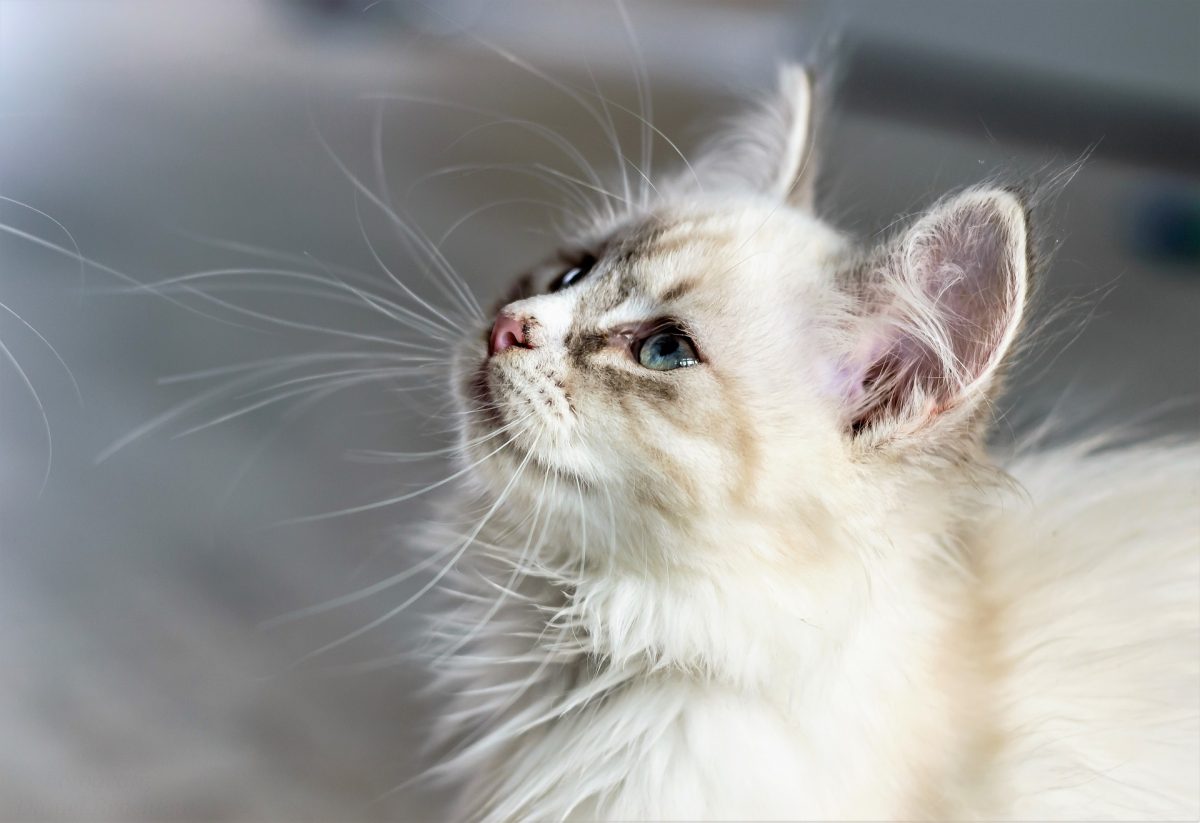
Feline Lymphoma Causes Symptoms Canna Pet
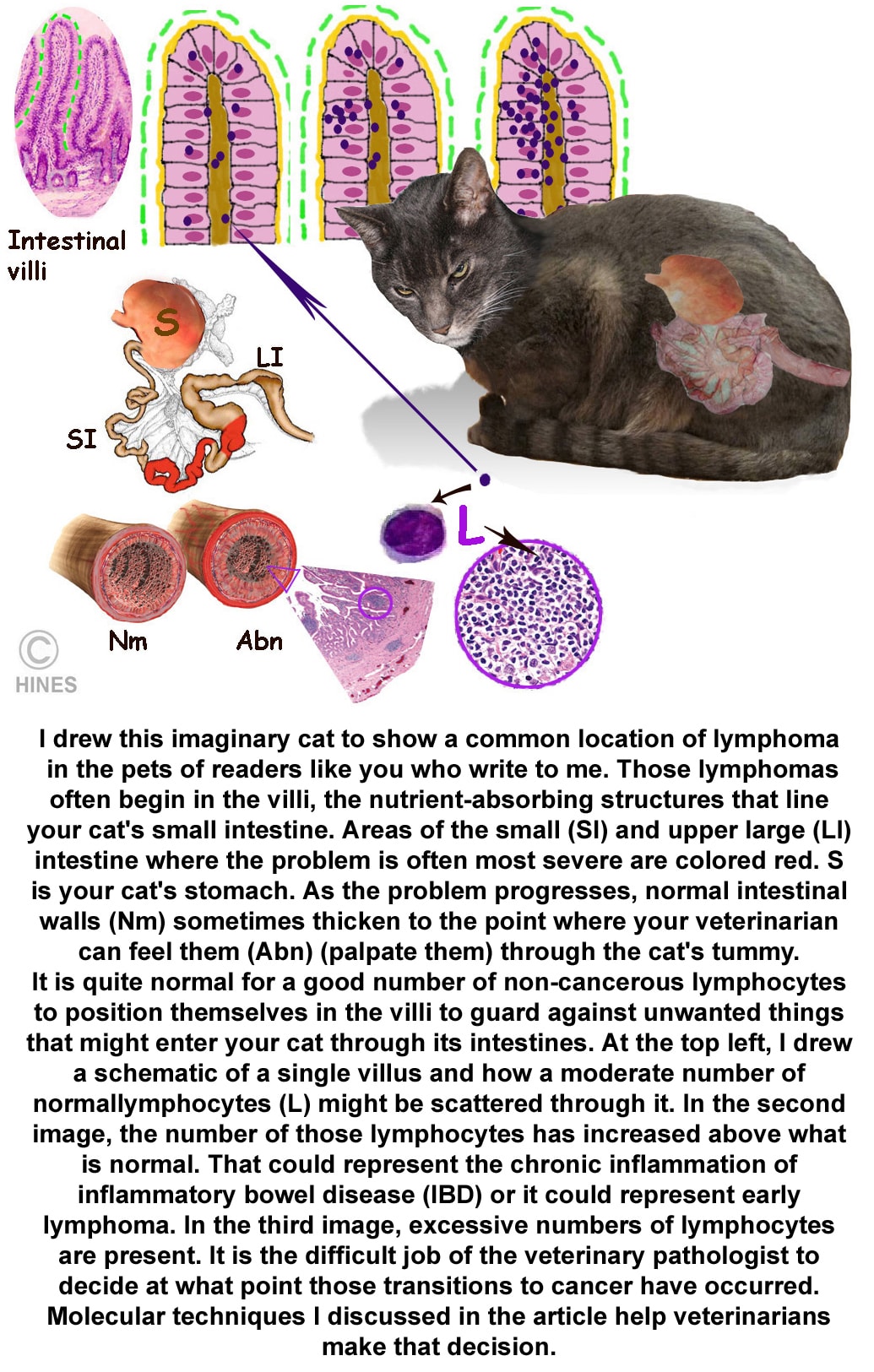
Lymphoma In Your Cat Ron Hines Vetspace 2nd Chance The Animal Health Website

